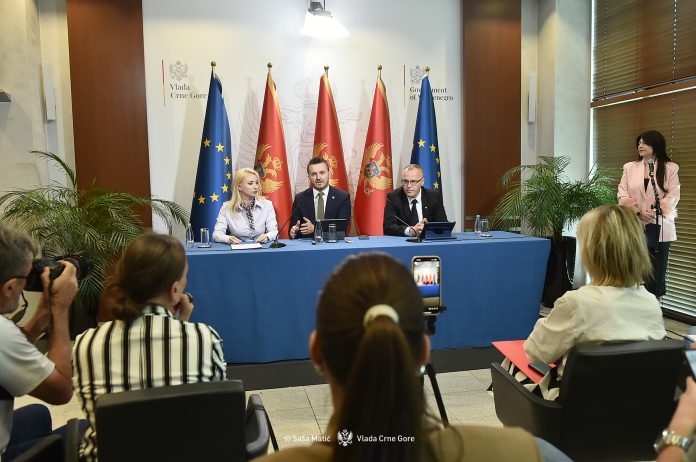In light of the accelerated negotiation process, the Ministry of European Affairs, supported by the Ministry of Public Administration, the Human Resources Administration, and the Regional School of Public Administration (RESPA), created the “Ready for EU” training program. This program aims to provide Montenegrin civil servants with knowledge of EU administrative practices, relevant expertise, and specific skills to prepare them for working in European Union institutions.
“Montenegro’s EU membership appears closer and more certain, and the goal of this Government is to complete all obligations from the accession process by the end of its four-year mandate and to become a member by 2028. Upon gaining full membership, Montenegro must delegate its representatives to all EU institutions, and we estimate that this number could be between 100 and 200 civil servants. Hence, we conceived the idea to design a program at this stage of the negotiation process that would provide civil servants with the necessary knowledge and skills to properly represent their country, alongside other member states,” explained Minister of European Affairs Maida Gorčević.
She added that the Ministry of European Affairs has been diligently working over the past six months not only on meeting the prerequisites for obtaining IBAR but also on regular obligations from the negotiation process and creating an environment where Montenegrin civil servants can familiarize themselves with EU administrative practices and gain relevant expertise and specific knowledge for Montenegro’s European path.
“I believe this Program will build the professional capacities of civil servants and affirm their commitment to an EU-oriented civil service by strengthening their knowledge and understanding of the EU accession process. We want, when Montenegro becomes the 28th member of the Union, to have trained and prepared officials who can take positions and represent their country in European Union institutions,” stated Gorčević.
Minister of Public Administration Marash Dukaj reminded that the adoption of Information on this program was preceded by months of successful cooperation and coordination of key institutions identified for the preparation of content and implementation of the “Ready4EU” Training Program.
“Given the Government’s commitment to Montenegro’s European path, we recognized the need to strengthen capacities in this area, especially since representatives of the Montenegrin administration will be able to apply for jobs in European institutions after completing EU accession negotiations,” said Minister Dukaj.
He added that this is a joint result aimed at strengthening the capacity of the state administration because only with professional, competent civil servants trained to meet the demanding knowledge and competency checks within EU institutions can Montenegro be part of the European system.
Director of the Human Resources Administration Agron Camaj explained that by creating the Training Program for acquiring knowledge and skills for work in EU institutions, bodies, and agencies, the Human Resources Administration is making a significant step towards the modernization and professionalization of the state administration. This Program will provide an opportunity to develop human resources that will represent our country in the current Mission of Montenegro to the EU, which will become the Permanent Representation of Montenegro to the EU after membership, and we are confident that this will happen soon.
“This Training Program is structured into six modules, within which four modules will strengthen knowledge of the history and functioning of the European Union, its institutions, legal framework and legislative process, skills, and competencies for negotiating and working in an international administrative context, as well as the working methods of individual European institutions. In the remaining two modules, officials will acquire skills in the areas of general business efficiency and communication, and the digital framework,” explained Camaj.
He added that all six modules contain a wide range of concrete topics, through which participants will be guided by a team of experienced and proven lecturers, who will be selected through a public call that will be announced soon.


